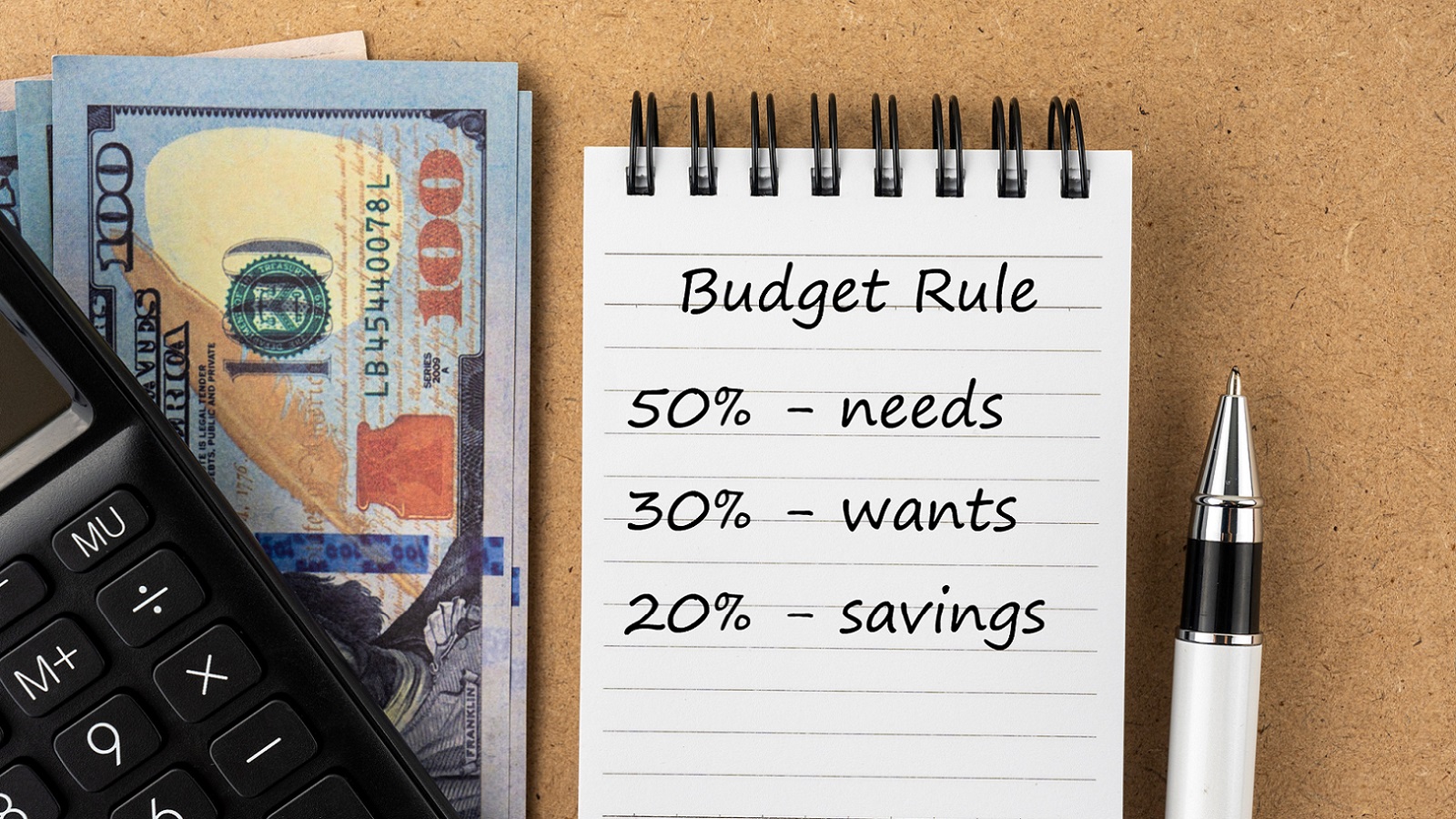Dear Mom and Dad: Thanks
Ideally, living at home should provide a way to improve your financial well-being and lay the groundwork for future success.


Profit and prosper with the best of Kiplinger's advice on investing, taxes, retirement, personal finance and much more. Delivered daily. Enter your email in the box and click Sign Me Up.
You are now subscribed
Your newsletter sign-up was successful
Want to add more newsletters?

Delivered daily
Kiplinger Today
Profit and prosper with the best of Kiplinger's advice on investing, taxes, retirement, personal finance and much more delivered daily. Smart money moves start here.

Sent five days a week
Kiplinger A Step Ahead
Get practical help to make better financial decisions in your everyday life, from spending to savings on top deals.

Delivered daily
Kiplinger Closing Bell
Get today's biggest financial and investing headlines delivered to your inbox every day the U.S. stock market is open.

Sent twice a week
Kiplinger Adviser Intel
Financial pros across the country share best practices and fresh tactics to preserve and grow your wealth.

Delivered weekly
Kiplinger Tax Tips
Trim your federal and state tax bills with practical tax-planning and tax-cutting strategies.

Sent twice a week
Kiplinger Retirement Tips
Your twice-a-week guide to planning and enjoying a financially secure and richly rewarding retirement

Sent bimonthly.
Kiplinger Adviser Angle
Insights for advisers, wealth managers and other financial professionals.

Sent twice a week
Kiplinger Investing Weekly
Your twice-a-week roundup of promising stocks, funds, companies and industries you should consider, ones you should avoid, and why.

Sent weekly for six weeks
Kiplinger Invest for Retirement
Your step-by-step six-part series on how to invest for retirement, from devising a successful strategy to exactly which investments to choose.
In July, more than half of young adults between the ages of 18 and 29 were living with one or both parents, the highest percentage since the Great Depression, according to Pew Research Center. While some may fear for our generation’s financial independence, there are a lot of advantages to living rent-free with Mom and Dad.
I had just graduated from college in February and was planning to move to Washington, D.C., in March when the COVID-19 outbreak put those plans on hold. Moving back home certainly wasn’t part of my post-graduation plan, but I am deeply grateful for the time I was able to spend with my family and get my finances in order.
Ideally, living at home should provide a way to improve your financial well-being and lay the groundwork for future success. A common rule of thumb for budgeting is to spend no more than 30% of your after-tax income on housing, says Michaela McDonald, a certified financial planner based in New York City. Depending on what part of the country you live in, that can be a difficult standard to meet. But if you’re able to keep your job after you move in with your parents, you’ve freed up that money to put toward other goals, such as saving for retirement and paying off debt. And depending on whether you pay rent and other expenses to your parents, you might also save on utilities, Wi-Fi and cable. Many parents throw in three square meals for free.
From just $107.88 $24.99 for Kiplinger Personal Finance
Become a smarter, better informed investor. Subscribe from just $107.88 $24.99, plus get up to 4 Special Issues

Sign up for Kiplinger’s Free Newsletters
Profit and prosper with the best of expert advice on investing, taxes, retirement, personal finance and more - straight to your e-mail.
Profit and prosper with the best of expert advice - straight to your e-mail.
Make a plan. All that passive saving is well and good, but it can also be unmotivating, so you should have concrete financial goals when you move back home. “Paying off debt is first and foremost in the order of operations when moving in with the family,” says Andrew Westlin, a certified financial planner based in Annapolis, Md. Start by taking a look at any high-interest-rate debt you may have, such as credit cards or personal loans (see Strategies to Tackle Debt). Use the money that would be going to other living expenses to pay those loans off as fast as possible. If you have student loans, make sure you’re at least making the minimum payments, Westlin says.
Don’t ignore retirement saving. If you’re working, and your employer matches 401(k) contributions, make sure you’re saving enough to get the full employer match. If you don’t have a 401(k), try to put at least something away in an IRA. If you can save just $100 a month in a retirement account, that money will grow substantially over the years. “It seems so far off, but your future self will definitely thank you,” McDonald says.
Next, start building an emergency fund. Generally, setting aside enough money to cover three to six months of expenses is a good way to establish a healthy safety net, Westlin says. That exercise can also help you set a time line: When you’ve reached your savings goal, that might be the signal that it’s time to fly the nest.
In my case, I didn’t have any debt that I needed to pay down, so I was able to begin building a financial safety net fairly quickly. I established a healthy emergency fund and started saving for retirement. After five months, I made the move to Washington, D.C. It was time to start a new chapter.
Profit and prosper with the best of Kiplinger's advice on investing, taxes, retirement, personal finance and much more. Delivered daily. Enter your email in the box and click Sign Me Up.

Emma Patch joined Kiplinger in 2020. She previously interned for Kiplinger's Retirement Report and before that, for a boutique investment firm in New York City. She served as editor-at-large and features editor for Middlebury College's student newspaper, The Campus. She specializes in travel, student debt and a number of other personal finance topics. Born in London, Emma grew up in Connecticut and now lives in Washington, D.C.
-
 Over 65? Here's What the New $6K Senior Bonus Deduction Means for Medicare IRMAA
Over 65? Here's What the New $6K Senior Bonus Deduction Means for Medicare IRMAATax Breaks A new deduction for people over age 65 has some thinking about Medicare premiums and MAGI strategy.
-
 U.S. Congress to End Emergency Tax Bill Over $6,000 Senior Deduction and Tip, Overtime Tax Breaks in D.C.
U.S. Congress to End Emergency Tax Bill Over $6,000 Senior Deduction and Tip, Overtime Tax Breaks in D.C.Tax Law Here's how taxpayers can amend their already-filed income tax returns amid a potentially looming legal battle on Capitol Hill.
-
 5 Investing Rules You Can Steal From Millennials
5 Investing Rules You Can Steal From MillennialsMillennials are reshaping the investing landscape. See how the tech-savvy generation is approaching capital markets – and the strategies you can take from them.
-
 I Need to Cut $1,000 From My Monthly Budget, and I've Already Given Up Starbucks and Dining Out. What Else Can I Do?
I Need to Cut $1,000 From My Monthly Budget, and I've Already Given Up Starbucks and Dining Out. What Else Can I Do?Here are some creative ways to save up to $1,000 a month, even if you feel like you've already made all of the obvious cuts.
-
 I'm a Government Employee and Need to Get By Until the Shutdown Ends. What Can I Do?
I'm a Government Employee and Need to Get By Until the Shutdown Ends. What Can I Do?The second-longest shutdown in history is leaving many federal workers with bills due and no paycheck to cover them. Here's what you can do to get by.
-
 What Does Medicare Not Cover? Eight Things You Should Know
What Does Medicare Not Cover? Eight Things You Should KnowMedicare Part A and Part B leave gaps in your healthcare coverage. But Medicare Advantage has problems, too.
-
 15 Reasons You'll Regret an RV in Retirement
15 Reasons You'll Regret an RV in RetirementMaking Your Money Last Here's why you might regret an RV in retirement. RV-savvy retirees talk about the downsides of spending retirement in a motorhome, travel trailer, fifth wheel, or other recreational vehicle.
-
 When Renting Is Smarter Than Buying
When Renting Is Smarter Than Buyingreal estate There are some situations when renting is smarter than buying. You're not necessarily throwing your money away when you rent.
-
 The 50-30-20 Budget Rule: A Simple Way to Save Money
The 50-30-20 Budget Rule: A Simple Way to Save MoneySaving Using the 50-30-20 budget rule is an easy way to save. It helps you prioritize saving while paying off debt.
-
 'Food Tax': Which States Still Tax Groceries?
'Food Tax': Which States Still Tax Groceries?State Tax Ten states still tax groceries, but that figure is shrinking.
-
 How Do You Pay off Credit Card Debt?
How Do You Pay off Credit Card Debt?Making Your Money Last Pay off credit card debt with these tried-and-true strategies.